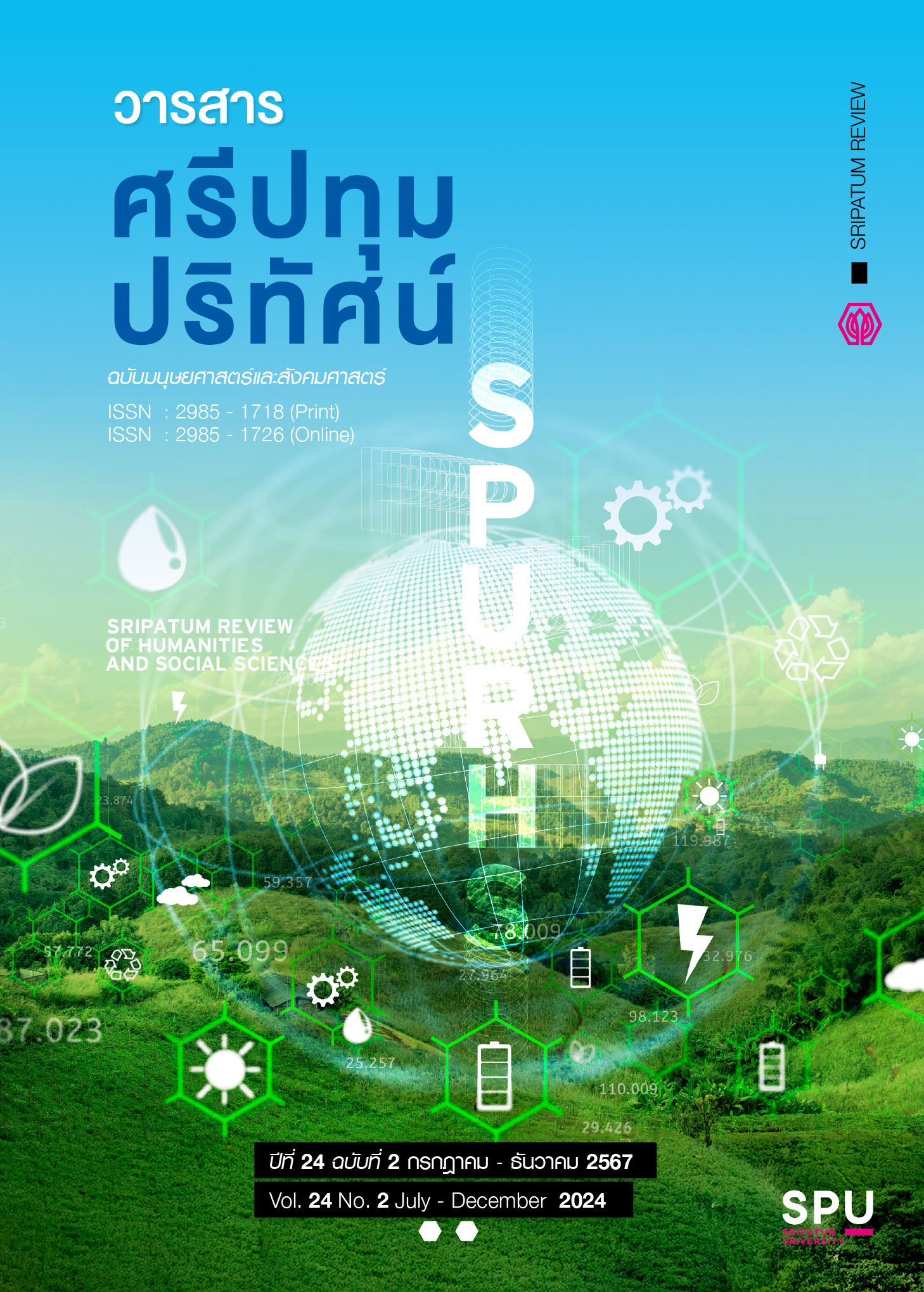Futures Studies in Social Studies Learning Management: Navigating Learning in Disruptive Times
Main Article Content
Abstract
This article examines the integration of futures studies into social studies education within the context of 21st-century disruptive changes, with the aim of enhancing learners' capacities in futures thinking skills and their ability to navigate highly uncertain situations. An in-depth analysis of the relationship between these two disciplines reveals their mutual promotion of “futures imagination” and “futures literacy,” which serve as fundamental pillars for social innovation. The research findings propose five distinct approaches for future-oriented social studies education and introduce a novel conceptual framework comprising a five-stage learning process. Furthermore, the study examines the inherent challenges in implementing futures studies concepts, emphasizing the necessity for paradigm shifts in education, the development of comprehensive futures learning ecosystems, and the establishment of an effective balance between technological advancement and humanistic values. These findings hold significant implications for educational policy development, curriculum design, and teacher professional development within the context of ongoing social and technological transformations.
Article Details

This work is licensed under a Creative Commons Attribution-NonCommercial-NoDerivatives 4.0 International License.
1. กองบรรณาธิการสงวนสิทธิ์ในการพิจารณาและตัดสินการตีพิมพ์บทความในวารสาร
2. บทความทุกเรื่องจะได้รับการตรวจสอบทางวิชาการโดยผู้ทรงคุณวุฒิ แต่ข้อความและเนื้อหาในบทความที่ตีพิมพ์เป็นความรับผิดชอบของผู้เขียนแต่เพียงผู้เดียว มิใช่ความคิดเห็นและความรับผิดชอบของมหาวิทยาลัยศรีปทุม
3. การคัดลอกอ้างอิงต้องดำเนินการตามการปฏิบัติในหมู่นักวิชาการโดยทั่วไป และสอดคล้องกับกฎหมายที่เกี่ยวข้อง
References
Ansah, R. H., Ezeh, O. V., Teck, T. S., & Sorooshian, S. (2020). “The Disruptive Power of Massive Open Online Course (MOOC)”. International Journal of Information and Education Technology, 10(1), 42-47.
Banks, J. A. (2017). Failed citizenship and transformative civic education. Educational Researcher, 46(7), 366-377. [Online]. Retrieved from: https://doi.org/10.3102/0013189X17726741
Castells, M. (2010). The rise of the network society. 2nd ed. Wiley-Blackwell.
Cavanaugh, C., & DeWeese, A. (2020). Understanding the professional learning and support needs of educators during the initial weeks of pandemic school closures through search terms and content use. Journal of Technology and Teacher Education, 28(2), 233-238.
Dator, J. (2019). Jim Dator: A noticer in time: Selected work, 1967-2018. Springer.
Davies, A., Fidler, D., & Gorbis, M. (2011). Future work skills 2020. Institute for the Future for University of Phoenix Research Institute.
Facer, K. (2011). Learning futures: Education, technology and social change. Routledge.
Gidley, J. M. (2012). Evolution of education: From weak signals to rich imaginaries of educational futures. Futures, 44(1), 46-54. https://doi.org/10.1016/j.futures.2011.08.006
Hicks, D. (2012). The future only arrives when things look dangerous: Reflections on futures education in the UK. Futures, 44(1), 4-13. https://doi.org/10.1016/j.futures.2011.08.002
Hipkins, R. (2012). Assessment of naturally occurring evidence of literacy. Assessment Matters, 4, 95-109. [Online]. Retrieved from: https://www.nzcer.org.nz/system/files/journals/ assessment-matters/downloads/AM2012_4_095.pdf
Holmes, W., Bialik, M., & Fadel, C. (2019). Artificial intelligence in education: Promises and implications for teaching and learning. Center for Curriculum Redesign.
Inayatullah, S. (2017). Teaching and learning in disruptive futures: Automation, universal basic income, and our jobless futures. Knowledge Futures: Interdisciplinary Journal of Futures Studies, 1(1), 1-11.
Jerome C. G. (2009). Futures Research Methodology 3.0. The Millennium Project.
Kaplan, A. M., & Haenlein, M. (2016). Higher education and the digital revolution: About MOOCs, SPOCs, social media, and the Cookie Monster. Business Horizons, 59(4), 441-450.
Lotz-Sisitka, H., Wals, A. E., Kronlid, D., & McGarry, D. (2015). Transformative, transgressive social learning: Rethinking higher education pedagogy in times of systemic global dysfunction. Current Opinion in Environmental Sustainability, 16, 73-80.
Miller, R. (2018). Transforming the future: Anticipation in the 21st century. UNESCO Publishing.
OECD. (2018). The future of education and skills: Education 2030. OECD Publishing.
Parong, J., & Mayer, R. E. (2018). Learning science in immersive virtual reality. Journal of Educational Psychology, 110(6), 785-797.
Poli, R. (2017). Introduction to anticipation studies. Springer.
Schwartz, P. (2012). The art of the long view: Planning for the future in an uncertain world. Crown Business.
Vincent-Lancrin, S., González-Sancho, C., Bouckaert, M., de Luca, F., Fernández-Barrerra, M., Jacotin, G., Urgel, J., & Vidal, Q. (2019). Fostering students' creativity and critical thinking: What it means in school. OECD Publishing. https://doi.org/10.1787/62212c37-en
World Economic Forum. (2020). The future of jobs report 2020. [Online]. Retrieved from: https://www.weforum.org/publications/the-future-of-jobs-report-2020/


